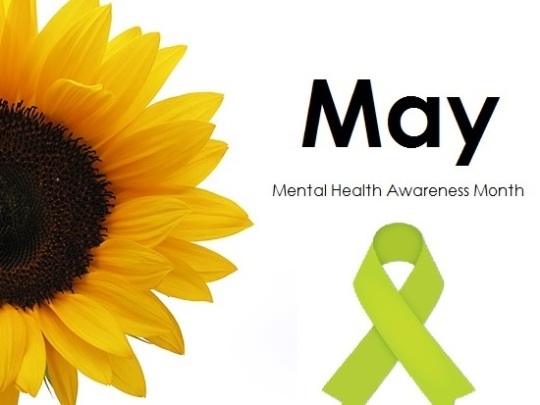I lived in West Orange, New Jersey practically my whole life. As much as I appreciated its kitschy, suburban town from a Hollywood movie nature, the family owned ice cream parlor you could walk to after school and the zoo down the street from my house, next to the ice skating rink we all graduated in, I was excited to go to college far away, in a state I knew almost nothing about. (“The Grand Canyon is in Arizona,” That’s all I knew…kind of still is.). It was an adventure that only myself and four other high school kids in my class decided to embark on – leaving their closest friends behind to go off to schools on the other side of the country. I was ready to see a new part of the world and find myself in a new place.
But I never really thought about how difficult being a transplant would be.
transplant (n.) – a person or thing that has been moved to a new place or situation; (v.) – move or transfer (something) to another place or situation, typically with some effort or upheaval
I mean, I knew it’d be hard in some aspects – only coming home about twice a year, making new friends, how do I get my favorite pair of rain boots out there if I can’t fit them in my suitcase…..finding new favorite places to eat… – but I didn’t realize that when you leave one place you’ve been in so long and start to settle into another place, your roots don’t take hold in the ground so easily. The soil you try to grow in, as nice as it is, still feels foreign…but the soil you’re so used to has already started to change without you. I like to call this, the transplant phenomenon.
While in Arizona I’ll see the friends I’ve been in love with for years doing things together that I used to do too, experiencing growing pains, losses and victories, life together, and just being with each other. And my heart aches. I want to be there, I want to be with them. But I can’t. I’m not there. I’m 2,000 miles away. I’ve met amazing people that I’ve come to care about deeply here, but there’s something to be said about finding your footing in life with the people that you used to talk to about how life would be when you were kids. There’s something, unlike anything else, about celebrating achievements with people you’ve been celebrating with over a third of your life and leaning on people who’ve held you up for just as long.
When I go home to New Jersey, and unpack my things, call my friends and hop into their cars (or borrow my mother’s, how high school) it starts to feel like home. The friendly faces I’ve missed for so long are sitting across from me once again. The laughter that erupts out of me fills the suburban air once again and it feels so familiar. But the transplant phenomenon still makes the familiar strange. As much as home feels like home, at the exact same time, it doesn’t. I still feel the distance. I feel my friends going on with their lives without me, not that I expected them to halt for me, but I see it and I feel it. I feel them living life together – what they talk about together, what they’ve done together. And I can’t help but feel like my presence or absence doesn’t really make a difference. That whether I’m home or not, at the table or not, everything will be the same.
But I’ll go back to Arizona and still feel a little out of place. I’ve made friends but not as many as back home. I still don’t always know where to go or who to meet and what to do. And eventually, I end up feeling a little alone and feeling the difference in the soil I’m in. I feel like a transplant with nothing for my roots to latch on to. As much as it’s my home, sometime’s it doesn’t feel that way. It is home, but not always…
The transplant phenomenon is a weird but fascinating fascinating concept – constantly feeling out of place, even when you’re home. But that’s what it all boils down to in the end, isn’t it? A word you don’t really think about when you say it: “home”. The word changes when you uproot yourself and go somewhere else and try to settle in. When you leave your home…but make a new one, where is your home now? What is home? What does home mean?
During my freshman year of college, I refused to say the word “home” whenever I talked about the dorm I lived in, because it didn’t feel like home. I lived there, my stuff was there, all my snacks and dirty laundry, but it wasn’t my home…but sitting in my best friend’s dorm room, watching a movie together or just staring at our laptops together – that felt like home. That single room that wasn’t even mine, with her in it, felt like home.
As difficult as being a transplant might be, leaving your old friends, missing your old friends, making new ones but still feeling out of place, perhaps the best part about it might be the opportunity it gives you to find out what home means to you. In the same vein as the phrase, “you don’t know what you’ve got until it’s gone,” maybe you can’t really know where or what your home is until you leave it.
Perhaps instead of home being the state I’m from or the state I live in, where I grew up or where I reside, home is actually the people I love and the places I love being in with them. We all know a home doesn’t have to be a house. But maybe a home can be a person, someone who, whenever you’re with them, you’re comfortable, happy. Maybe home is just another word for, “something I need to be happy, something that makes me feel cared for and loved.”
And if that’s the case, maybe the other best thing about being a transplant is that you have the opportunity to find as many homes as you might need.
When we stay in one place, we have only so many homes, all of which give us something we need and love, but chances are those will be the only homes you’ll have for a long time. As difficult as it is to leave the homes we know, going to a new place gives us a chance to find more homes for different parts of us, parts that might not have received as much love in the place we originated from. Or, it gives us a chance to make bigger homes with new people, or let someone into our own homes and let him/her fix up a few things inside that, maybe we never thought could be fixed. We should always be willing to find new homes. Every person you invite into your life has something to give you. And sometimes, leaving what you know gives you a chance to meet people who you may never have met before or would have never spoken to where you were from, and gives you the chance to find new people to call home.
Buildings and spaces crumble. Rooms don’t remember you when you return to them and sometimes you outgrow them and they make you feel out of place. But the people you love and who love you will always remember you and even though things might change when you leave them, when you return to them, as far as they’re concerned: you are home because you’re with them. And even if you leave them, and they don’t see you, there’s always a light on in the room you occupy in their hearts.
And when you think about it that way, maybe being a transplant isn’t so bad – no matter where you go, no matter how far you go, you’re always home somewhere.













